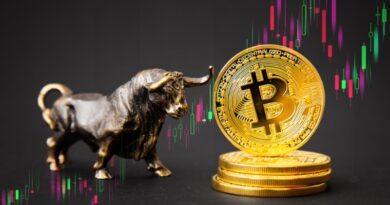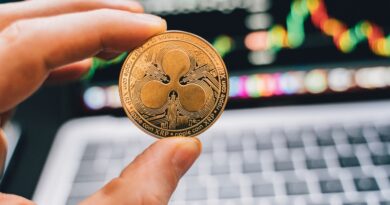Ghana Central Bank to Launch Crypto Regulations by September 2025
Ghana’s Central Bank Gears Up for Crypto Regulations by 2025
Cryptocurrencies are changing the way the world handles money, and Ghana is no exception. In a move that many have been waiting for, the Bank of Ghana announced that it will roll out new cryptocurrency regulations by September 2025.
This decision could shape the future of digital finance in the country. If you’re wondering what this means for you and the growing crypto community in Ghana, let’s break it down.
Why Is Ghana Regulating Crypto Now?
Cryptocurrencies like Bitcoin and Ethereum have become more popular over the past few years. People are using them for sending money, investing, and even paying for services.
However, with that popularity comes new risks. Scammers and fraudsters have been taking advantage of the unregulated space, and without proper oversight, regular users could get hurt.
To make sure people are protected and the financial system stays strong, Ghana’s central bank wants to create clear rules for:
- How cryptocurrencies can be used
- How businesses offering crypto services should operate
- How investors and consumers are protected
It’s all part of the country’s larger plan to modernize its financial system and keep pace with global trends.
What Led to This Decision?
The Bank of Ghana officials have been studying cryptocurrencies for some time. They launched a Fintech and Innovation Office a few years ago to keep an eye on new technologies.
Recently, working with a German development agency called GIZ, they completed a study called the Crypto Asset Framework.
The study looked at:
- The risks and opportunities of crypto
- How other countries are regulating digital assets
- The best way for Ghana to approach the crypto world
Based on the findings, they now have a solid foundation to build their new regulations.
What Could New Crypto Regulations Look Like?
Even though the specifics are still being worked out, the Bank of Ghana has given a glimpse of what to expect. Here’s what experts believe might be included:
Licensing and Registration
Just like banks and insurance companies need licenses to operate, crypto service providers will likely need to register with the Bank of Ghana.
This means you can expect more trust and accountability from the companies handling your money.
Consumer Protections
Losing money to scams is a painful experience. New rules could make businesses responsible for protecting users against fraud and theft.
Think of it like seat belts for the crypto world — making sure you’re safer when navigating new financial territory.
Risk Management Standards
Cryptocurrencies can be very volatile. Prices can shoot up or crash in a matter of hours. Regulations could require companies to educate customers about these risks and have systems in place to manage sudden market changes.
What Does This Mean for Crypto in Ghana?
If you’re holding Bitcoin, trading Ethereum, or planning to start a crypto-related business in Ghana, this is big news.
The upcoming regulations could:
- Boost confidence in the crypto market by providing legal certainty
- Attract more local and international investment into the sector
- Encourage innovation by creating a clear path for setting up crypto businesses
- Protect ordinary users from scams and unsafe practices
Of course, there’s also a question mark: Will new rules make it harder for small startups to enter the space?
We’ll have to wait and see exactly how the Bank of Ghana balances opportunity with caution.
How Is Ghana’s Approach Different?
Many countries are still figuring out how to handle cryptocurrencies. Some, like El Salvador, have fully embraced it by even making Bitcoin legal tender. Others, like China, have cracked down hard.
Ghana seems to be choosing a middle path — not banning crypto, but also not letting it run wild.
Instead, they’re aiming for “responsible innovation.” That means encouraging new technology without letting it cause chaos.
It’s a smart move if you ask me. Just like traffic lights make driving safer without stopping people from getting where they’re going, good regulations can make crypto more reliable without killing the excitement.
What Should You Do Before 2025?
If you’re involved in crypto in any way — even just as an investor — it’s a good idea to prepare now. Here are a few steps to consider:
- Stay informed: Keep an eye on announcements from the Bank of Ghana and crypto news sources.
- Choose trustworthy companies: Use platforms that follow best practices, even before it becomes a requirement.
- Keep good records: Track your crypto transactions carefully; you might need them for future audits or tax reports.
- Be ready to adapt: When the regulations arrive, some processes could change. Being flexible will help you stay ahead.
Have you thought about how regulation might affect your crypto investments? If not, it might be the right time to start planning.
Looking Ahead: The Bigger Picture
Cryptocurrencies are not just a trend; they are changing how we think about money. Ghana’s move to regulate digital assets isn’t about stopping the future — it’s about shaping it.
By setting sensible rules, the country is making crypto safer for people like you and me. It’s opening doors for innovation while making sure no one gets left behind.
You may even see brand new jobs and businesses popping up thanks to these changes. Imagine local companies offering blockchain services, or educational programs teaching the next generation about digital finance.
It’s an exciting time, and Ghana has positioned itself to be a leader in Africa’s crypto journey.
Final Thoughts: What Will You Do Next?
As we move toward September 2025, there’s a lot to look forward to. Whether you’re just curious about Bitcoin or deeply involved in crypto trading, these upcoming regulations will likely touch some part of your financial life.
So, here’s the real question: Are you ready for a new era of crypto in Ghana?
If you haven’t started thinking about it yet, now’s your chance. Stay informed, stay flexible, and stay optimistic. The future of finance in Ghana might be closer than you think — and it might just be digital.









